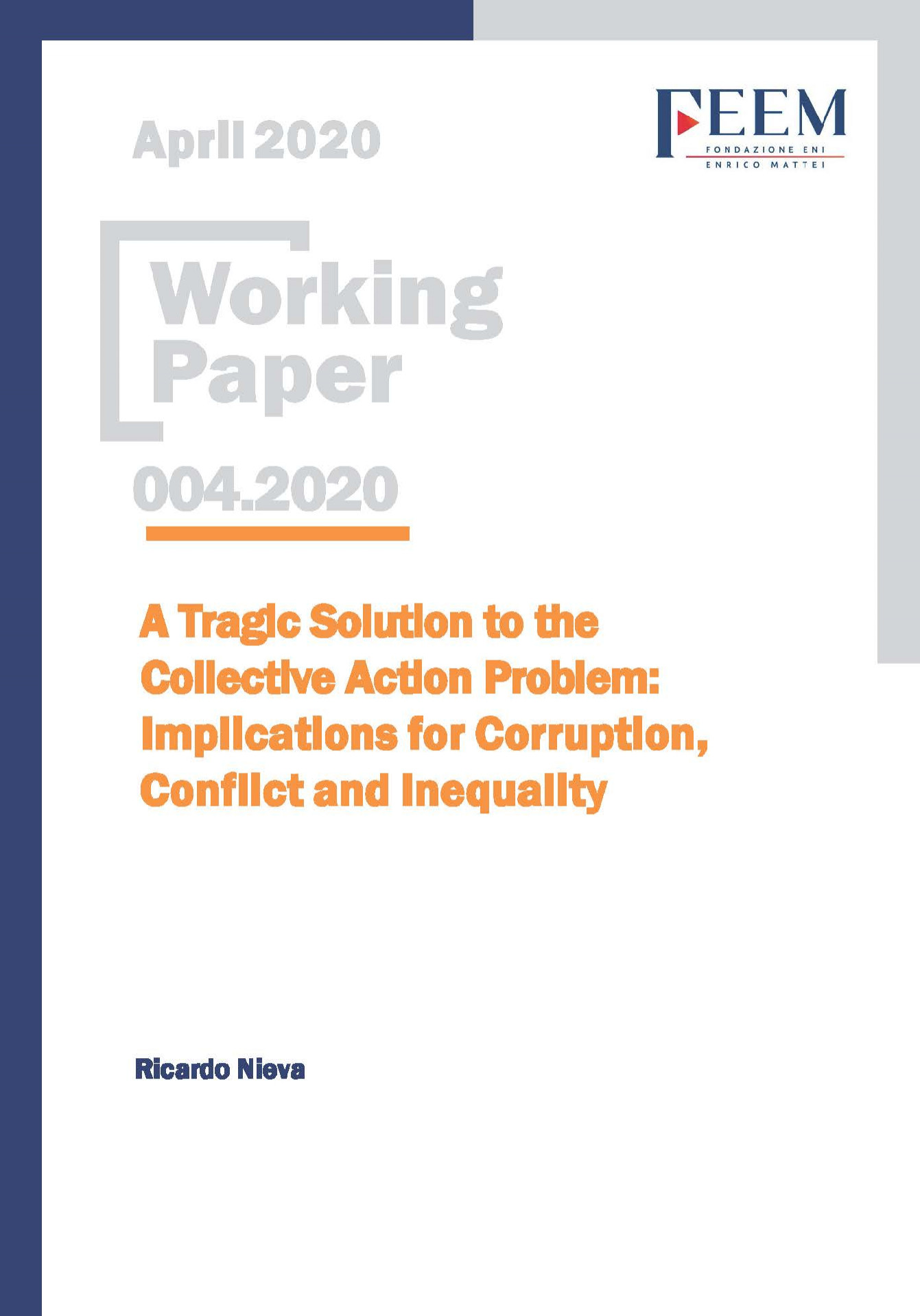A Tragic Solution to the Collective Action Problem: Implications for Corruption, Conflict and Inequality

21.04.2020
Ricardo Nieva (Department of Economics – Universidad de Lima)
D72, D73, D74
Heterogeneity, Corruption, Collective Contests, Inequality, Selective Incentives
Firms and Cities Towards Sustainability
Stefano Pareglio
We study the role of an enforcer in the effectiveness of selective incentives in solving the collective action problem when groups take part in a contest. Cost functions exhibit constant elasticity of marginal effort costs. If prize valuations are homogeneous, our source of heterogeneity induces full cost- sharing and the first-best individual contributions; further, the group probability of winning goes up. With heterogeneity in prize valuations, an increase in the effectiveness of the enforcer in conflict increases the group probability of winning only if the prize valuation of the enforcer is lower than de Lehmer mean of those of the other players; however, the induced partial cost sharing is not group efficient. If effectiveness “tends to infinity”, the collective action problem is solved with partial cost-sharing if that prize valuation is not too low. Tragically, if productivity is low (if the prize is private in our set up) this occurs with corrupt coalitions which have been shown to form together with conflict and inequality endogenously; otherwise, this occurs with non corrupt coalitions. Further, even if such valuation is too low the group winning prob- ability goes up. In this latter case, over cost-sharing yields group efficiency.
We study the role of an enforcer in the effectiveness of selective incentives in solving the collective action problem when groups take part in a contest. Cost functions exhibit constant elasticity of marginal effort costs. If prize valuations are homogeneous, our source of heterogeneity induces full cost- sharing and the first-best individual contributions; further, the group probability of winning goes up. With heterogeneity in prize valuations, an increase in the effectiveness of the enforcer in conflict increases the group probability of winning only if the prize valuation of the enforcer is lower than de Lehmer mean of those of the other players; however, the induced partial cost sharing is not group efficient. If effectiveness “tends to infinity”, the collective action problem is solved with partial cost-sharing if that prize valuation is not too low. Tragically, if productivity is low (if the prize is private in our set up) this occurs with corrupt coalitions which have been shown to form together with conflict and inequality endogenously; otherwise, this occurs with non corrupt coalitions. Further, even if such valuation is too low the group winning probability goes up. In this latter case, over cost-sharing yields group efficiency.
***
Suggested citation: Nieva, R., (2020), ‘A Tragic Solution to the Collective Action Problem: Implications for Corruption, Conflict and Inequality’, Nota di Lavoro 4.2020, Milano, Italy: Fondazione Eni Enrico Mattei.
